Christopher Cross is best-known for his Grammy Award winning song “Sailing”, the Oscar winning song “Arthur’s Theme (Best That You Can Do)” co-written with Burt Bacharach and others, and his hit “Ride Like the Wind”, all of which came within a short span at the beginning of the 1980’s. In fact, in 1980 he won Grammys for Record of the Year, Album of the Year, Song of the Year and Best New Artist, a feat that has not ever been duplicated.
While he wasn’t able to maintain that incredible initial string of success, Cross has continued to release new music since that time, most recently his well-received new album Secret Ladder. This interview was for a concert on 11/22/14 at the Granada Theatre in Santa Barbara in support of this new album. It was done by hpone on 11/19/14. (Ethan Hill photo)
Jeff Moehlis: What can we look forward to at the upcoming concert?
Christopher Cross: The reason I’m touring and continue to tour is that I’m making new music. A lot of people are just familiar with the old stuff, but I’ve made about 10, 12, 14 albums so far. The new one, Secret Ladder, came out September 12. It’s really why I keep touring, to expose the new music.
It’s a singer-songwriter show, very much like a Jackson Browne or a James Taylor show. It’s a great group of musicians, mostly jazz-trained musicians – piano, bass, drums, keys, sax, two female singers. We do a broad selection of stuff from my albums – the hits that people know and want to hear, but we also do a sampling of songs from all these albums that I’ve had out, with a little bit of a focus on the new record, three or four songs from that. I’ve had a hundred and something songs, so it’s just a sampling of all those. There’s an acoustic section of the show – we break out front and do an acoustic thing. So it’s a straight-ahead show. If people like my voice and like to hear me sing my songs, I think it’s very satisfying.
It’s good also, if you haven’t heard this other material – there are certainly some die-hard fans that are there – but if you come just because you’ve got some romantic connection to “Arthur” or whatever, you’ll get to hear all this other music, which is really the point. I’m not out there selling “Arthur”, which is selling just fine.
JM: Can you tell us a bit about the new album, for the people that aren’t familiar with it?
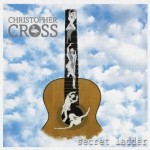
CC: It’s called Secret Ladder, it’s got thirteen songs. Most of the songs are written by myself and my partner Rob Meurer. There’s a couple of guests on it – Michael McDonald sings on it, Eric Johnson plays guitar – and I had some great musicians – Keith Carlock on drums from Steely Dan, Will Lee on bass. Every album I’ve made is an evolution of my writing.
Everything gets more sophisticated, musically and certainly lyrically more sophisticated, because I’m older now – I’m 63, so I have a little something to say from my perspective. It’s very Christopher Cross music. It’s probably just a little more sophisticated in its production and chordal structure and stuff, and then lyrically the songs aren’t all about “I love you, baby”, they’re more thoughtful than that.
It’s gotten great acclaim. If you look at iTunes, the comments are sterling. It’s tough right now, certainly with Spotify and streaming, to sell records. It’s pretty frustrating. As you saw, I’m sure, Taylor Swift just pulled her record from Spotify. This new model, the paradigm shift, is very unfair to artists. I’m just glad I had my 15 minutes when I did, because at least I did have some success with that.
I don’t know how young bands are going to do it. It’s pretty tough when you don’t make any money on your product. It costs money to do them, even though the kids are making records cheaper. I mean, Secret Ladder was actually half the cost of my first album in 1979, but I’m still way in debt from it just because it’s hard to make the money back. But it’s a really nice record – people should check it out.
JM: I understand that you used to live in Santa Barbara. Can you tell me what you remember most fondly about living here?
CC: I have a number of wonderful friends there, certainly. I’m divorced now, but my wife Jan and I moved up there because of Mike and Amy McDonald. Mike and Amy moved there and just loved it, and encouraged us to come up there and live, and so we did. My two younger children – my son Rain who’s 25 and my daughter Madison – were born there, so certainly there’s a great fondness for the town for the children being born there and the friendships we made, and the children’s friendships.
You know, it’s a very idyllic place to live. For me it was a little impractical work-wise, because I was constantly flying or driving to L.A. I think that Santa Barbara’s just a beautiful place to live, especially if you live down on Padaro Lane. And you have money and you don’t have anything to do. It’s kind of that kind of town. It’s just one of the greatest places in the world to live, but it’s not a great place to make a living.
JM: I once asked Alan Parson how he ended up in Santa Barbara, and he said that you had encouraged him to move here. I’m happy to hear that musicians are successfully selling the town to their musician friends.
CC: Yeah, it’s funny – it does work like that. Like I said, Mike and Amy were emphatic that we had to move up there. Then they eventually moved away, and now they’re back living in Santa Barbara. But Alan was tired of England, and of course course he’s friends with Mike, too. So Alan and Lisa loved it – it’s such a beautiful spot. It’s a small community of music people, and word spreads. And it’s not a hard sell, if you can afford it. It’s a beautiful place to live – there’s hardly a place better. But as far as trying to work and travel internationally, it’s just a little bit tough.
Karla Bonoff is another one. Karla and I are very close friends, and she was living in Hollywood and wanted to make a little life change and she moved up there, maybe 20 years ago, and she loves it.
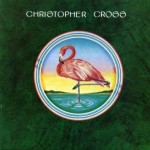
JM: “Sailing” is an iconic song that people still love today. How did that song come together?
CC: It’s hard to tell where songs come from. They seem to be channeled from some other source, and you just happen to be the recipient of that. I think most writers feel that way.
To me it’s a song about transition. I think that people take the very literal metaphor about sailing, and it’s pleasant for that purpose. But the song to me is about transition through art. The canvas – it’s a painter’s canvas, or ballet, or any type of art where you experience transition through interaction with it. So that’s what the song’s really about – it takes you away to a special place where only art can take you. So that’s the meaning of the song. A lot of people just think it’s just the serenity of sailing around in a boat. But not everybody has the money to sail around in a boat.
I did have somebody who took me sailing when I was younger. It was a little bitty boat, and there was some nice camaraderie there, and I think maybe that has something to do with why I chose that metaphor. I joke that if he’d have taken me bowling then it would’ve been about bowling. The sailing part is a very surface metaphor.
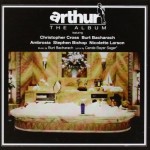
JM: Another of your classic songs is “Arthur’s Theme”. Can you tell me about the collaborative process for that song?
CC: I was the new artist, and everything had just happened with the Grammys, so I was asked to score the picture, which I had never done but was excited to do. But then Steven Gordon, who wrote Arthur and directed it, was sort of new to the game – this was his directorial debut – and he just felt insecure about having somebody new do the music. So they gave it to Burt Bacharach to do, which is certainly understandable. I wasn’t really disappointed, because Burt’s certainly a legendary artist. They gave it to him, so I just kind of walked away from it.
But I’d been working on some ideas. So anyway, Burt called me and said that he was going to score the picture, but that they still wanted to work on the title track for the movie – he and Carole Bayer Sager, who he was married to at the time – they still wanted to write the title song. Would I be interested in writing the title song with them?
I was incredibly flattered. I’m a huge fan of Burt’s, and I’ve been influenced by him my whole career, like almost all pop writers have. So I went to Burt’s house – it was kind of heady – but I went to their house in Beverly Hills and Burt and Carole and I wrote the song with some involvement from Peter Allen, which is a long story. Peter wasn’t there, but for the song we used some lyrics from a song he and Carole had written previously – actually the chorus.
It was just a great opportunity for me to sit with one of the most iconic writers of my generation. Then Burt and I subsequently wrote a song for the Olympics [“A Chance For Heaven”] and a couple of other things. But he’s a very nice, brilliant man, and Carole’s a great lyricist. It was kind of one of those things when I’m at the house that night and you have to pinch yourself. When I walked in, Burt had two Oscars on his mantle already. So it was a little heady.
But it was wonderful, and they were very happy with the song when we finished it that night. They were talking about Oscar nominations and stuff, and I just thought, you know, this is insane. I mean, I’d just won the Grammys and everything, and I would never in a million years imagined being in that circle, of being eligible to win an Oscar. And of course it ended up being right. But the whole thing was kind of a fairy tale.

JM: I love that you recorded “Lemon’s Theme” for Liz Lemon from 30 Rock. What prompted you to take that joke and actually turn it into a song?
CC: Actually, a sax player friend of mine, David Mann, who I’ve worked with in New York, I think he shares a babysitter with Tina [Fey] or something. So I didn’t know her, but he suggested I take her little piece from the show and flesh it out. I mean, I was a fan and everything, certainly, and my daughter is an aspiring actress – she went to NYU – and she’s a huge Tina fan, being female and everything.
So what we did is we took her little piece and fleshed it out into a song, gave it a full-on production. I didn’t know her, but I knew Jimmy Fallon, so I asked Jimmy to send it to her for me, which he did. I didn’t hear anything for a little while, but then eventually I did hear back from Tina. I got some beautiful flowers in my home when I was gone, and we subsequently got together and had dinner in New York with my daughter, who was going to NYU, and we had a lovely dinner and my daughter got to spend a few hours with Tina talking about the craft and all that stuff.
It’s was great to meet her, and Tina was very appreciative of the song. I mean, she told me that no one’s ever done anything like that for her. So it was great. She’s just unbelievably cool. But the nicest part was my daughter – Tina’s such a role model for her, being a female actress – as a dad, to give my daughter the opportunity to sit and meet Tina Fey and talk to her about acting, and female roles in the business. It was just so rewarding and amazingly wonderful for me, and my daughter was thrilled. When you have kids, those are the moments that are special. For me, the whole thing was great and it’s been lovely to get to know Tina, but the coolest thing was watching Madison sitting there talking to Tina.
JM: I have to ask about the video series Yacht Rock. Have you seen those episodes, and what do you think of the way the different people are portrayed?
CC: Well, you know, I saw the original one back when it was released. The very first one was mostly about Hall and Oates and Mike [McDonald]. I thought it was kind of stupid and fun. I suppose it was kind of silly. I didn’t think much more about it, but then it’s kind of grown into this big thing. It’s huge in Japan. People like Jimmy Fallen are big fans of the series, and it’s grown and they’ve done more. There was a later one – I think the 12th one – that Michael and I were in again.
I don’t know those guys, and I’ve never really gotten into it. But it was sort of funny and sort of silly, and it’s become this cult thing. You know, Mike and I are such good friends, and there’s so many things like this that come up – you’re used on a TV show or something like that. It’s always fun, but we don’t talk about it much.
People talk about putting a Yacht Rock tour together based on the people that were in it. It would be absurdly expensive, because they have Hall and Oates, Steely Dan. But it’s cool. It was a wonderful era of music that I was in. My peers at that time were those people. It was a rich time in music that I miss. I miss vinyl and retail and the whole cycle of life back then. It’s changed so dramatically. Certainly the series creates a fondness for that, which is nice.
JM: I know that Michael McDonald was on your first album. Were you guys friends already? Or did you meet in the studio?
CC: He’s been on almost every album. He’s on the new one, too.
When I did the first album, Michael Omartian, who was producing my album, had been very intimately involved with Steely Dan, playing piano on all the Steely Dan stuff. Omartian invited McDonald to come down to hear what he was doing with some Texas artist, so Michael came down and we hit it off and he offered to sing on a couple of things, which he did and which was an invaluable help. And then, I don’t know, Mike and I just seemed to hit it off. We’re both family men, pretty normal, kind of low-key guys. Our friendship just seems to have really sustained over the years, I guess because we are pretty quiet, normal guys. My children have grown up with his children. Amy, his wife, she was a singer early in her career and I worked with her some. It’s just a very familial connection.
We remain very close – in fact, I just got a text from Amy. So, it’s just one of these wonderful friendships, and it’s rare in this business. You meet a lot of people. A lot of people in the business are full of shit, and have different issues. But the two most wonderful people that I’ve known in all my years in the business, who are just solid people, have been Michael and Carl Wilson from The Beach Boys.
JM: People may not know that before your first solo record, you were a bit of a hard rocker. You were in a band that opened for Led Zeppelin and Jethro Tull, and I read that you once filled in for Ritchie Blackmore in Deep Purple. Can you tell me a little bit about those experiences?
CC: I was managed by a guy Joe Miller in San Antonio who was a promoter who did a lot of shows. In those days they used to have a local band on the show as well, so I just got a lot of great spots, getting opportunities to open for these great bands back then. It was something that doesn’t happen now. So I got to play with Zeppelin for a week, and all these other bands. I just got put in positions of being able to be around this stuff, which is great. I had long long hair and Marshall Stacks and a Flying V. I was kind of a rocker. My music back then was more based in the the Zappa-type style.
Anyway, we’d just opened for Zeppelin and it was great to be around Jimmy and Robert and John Paul, and have a chance to be around that at 17 years old. But with Deep Purple, they came to town and Ritchie Blackmore reacted to a flu shot and was quite ill. It was their very first American show, and they were played a thousand-seat club that my manager owned. They had a little trepidation about canceling the show because it they just felt it wouldn’t look good for the press. So Joe said, “Look, I manage this kid Chris Geppert. He’s a good guitarist and he’s a big fan of Ritchie’s. He could probably step in and sub.” They kind of argued amongst themselves about it, but Jon Lord who ran the band kind of made the decision that it was better to play than not. They told the audience that Ritchie wasn’t going to play. About 80% of the people stayed.
Interestingly, Eric Johnson’s band opened the show night – that’s where I met Eric. So I played and it went OK. We played some hits and played some blues. Then when Ritchie got well I went to the airport to say goodbye to them, and we was very gracious and thanked me for helping out and covering for him. It was another one of these out-of-the-body trippy things. I’ll write a book someday, I suppose. It’s crazy because I was a huge fan of Blackmore’s. Massive. It’s wild. It’s been a wonderful, wonderful ride, and I’m able to continue to do what I love and support my family. And I’m still doing it. It’s nice to come back to what I do consider to be a hometown, one of the hometowns in my life – I’m an Army brat so I’ve lived a lot of places – to see old friends and play in a classic theater.
JM: What advice would you give to an aspiring musician?
CC: It sounds kind of cliche, but all that follow-your-dream crap. I think the most important thing in life, I tell my kids, is to do something you enjoy. It doesn’t really matter what it is, if it’s laying tiles, if it’s working in the medical profession, in chemistry, or you want to be a deckhand on a boat. Whatever you do, just do something you enjoy, because life is short and you want to enjoy the time you spend doing it.
If music is something that you’re passionate about and you love, then you might make sacrifices but you’ll get so much enjoyment out of it, even if you just play at a little local place. It’s a wonderful way to spend your day. I will say that my father was a doctor, and I entertained that for a little while, but my father discouraged me because he said, “You know, a doctor’s a great thing to be if you want to be a doctor, but if you don’t want to be a doctor it’s a horrible thing to be.” So I think therein lies the lesson. If you’ve got music in your blood and you want to do it, you just have to do it and hope for the best.
Certainly the business is tough right now, tougher than it’s ever been to make a living doing it. Even though it’s been democratized and you have YouTube and you have a way of getting your music out there much easier than you used to, there’s so many people doing it. So trying to create a name for yourself to where you can sell tickets to a show in Cleveland is pretty tough.
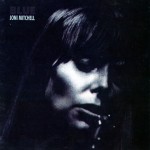
But, like I said, it shouldn’t matter. That shouldn’t be the driving force. It should be something that you love to do. I don’t know what else to tell anybody, because talent… I know there’s classes where they say they teach songwriting. I think it’s a great thing to learn music, to learn how to read music and to learn the techniques of music. I think it’s important to know how to read music, and know proper technique. That’s a very important thing for the craft itself. But that’s more of a technical skill. You know, they have these classes where they try to teach songwriting and stuff, and to me, Joni Mitchell is Joni Mitchell because she’s Joni Mitchell. I don’t know that you can plan on becoming Joni Mitchell or Randy Newman. They are who they are because they’re gifted, and that gift comes from someplace. It’s just something you can’t learn. It’s the same with Monet and Picasso. They’re gifted. So not everybody’s going to be a Randy Newman or Joni Mitchell, but you can do something you enjoy and it’s very fulfilling. You can’t really stop yourself. If you’ve got the bug, you’ve got to go for it.

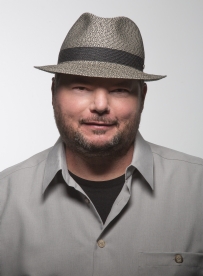
Discussion
No comments for “Interview: Christopher Cross”